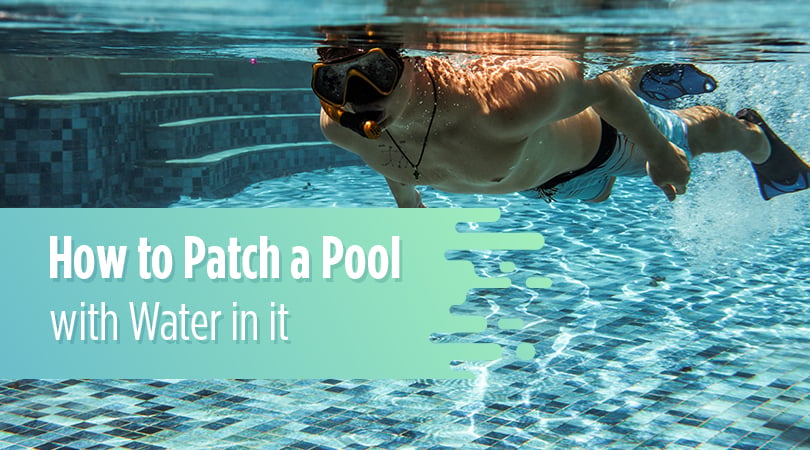
Keeping the pH level of your swimming
pool water balanced and clear is an important part of every pool maintenance routine. It's also a drag to deal with when you could be having fun swimming! Chlorine is your go-to chemical to try to remedy an imbalance, but distribution choices vary.
Today we are going to explore different equipment to hold chlorine tabs in your pool. We will focus on skimmer baskets and automatic chlorinators. Depending on the type of pool you own you may find one option more convenient than the other.
Chlorine tabs, also called pucks or tablets, are discs you add to a floating chlorine dispenser, skimmer basket or automatic chlorinator. They come in 1 and 3-inch sizes. The chemicals include calcium hypochlorite and cyanuric acid. When placed in water the chlorine tab dissolves it becomes a light acid which sanitizes your pool water and surfaces.
Here are the Pros and Cons of Skimmer Baskets and Automatic Chlorinators:
It's important always to place chlorine tabs in a container. Tablets will stain plaster and damage vinyl or fiberglass pools if not contained. They can also harm skin. Protect your swimmers by keeping tablets in a container, not free-floating through your pool.
If you do use a chlorine floater, remove it carefully while swimming, to prevent it from capsizing, or being used as a pool toy. Tying off a floater in the deep end, using a length of string will help keep it from ‘floating' around too much and also protect the pool wall from staining.
Adding Chlorine Tabs to a Skimmer Basket
Pros
- Skimmer baskets are less expensive than chlorinators.
- You always know when it's time to add more chlorine tabs because you can see into the skimmer.
- You can manually control how much chlorine enters your water.
- Less maintenance and part replacement.
- Fewer steps when opening and closing your pool for the seasons.
Cons
- Chlorine tabs dissolve frequently, so you need to check the skimmer basket and manually add tablets often.
- When the tabs are in a skimmer basket, or floating chlorine dispenser, the swimming pool water becomes disinfected as the container circulates through the water. If the water is stagnant or you remove the dispenser the water sanitation will stop.
- Your liner can stain if the skimmer basket stays in one location next to the pool wall for too long.
- Chlorine tablets in a skimmer basket add chlorine to water which then circulates through the pump and filter system. Over time this can corrode your system.
- Tablets in your skimmer lead to acid building up if your pumps are not working.
- If the critical acid build-up occurs in the middle of the summer, not only will you be unable to use your pool but you will also have the expense of paying for a pool technician and replacement parts.
How Much Suction Should a Pool Skimmer Have?
One key factor to consider when deciding on a pool skimmer is the suction flow rate. Pool skimmers should handle 100% of the swimming pool's desired water turnover or turnover rate. But ultimately flow depends on multiple factors including plumbing size, skimmer design, pool codes, and the shape of your pool.
Residential and Commercial Pools
Generally, a public facility requires about one skimmer for every 500 sq. ft. of pool surface area and a residential pool will have a skimmer every 800 sq. ft. This means the same size pool will have more skimmers if it's for commercial use in most cases.
Pools with heavy debris will need additional skimmers to keep your swimming pool clean.
Adding Chlorine with an Automatic Chlorinator
Pros
- Automatic chlorinators feed your pool water at a set time without equipment monitoring.
- The chlorinator pumps chlorine directly into your pool instead of running through your filter first, protecting the filter system from chlorine corrosion.
- You can add a lot of chlorine at once and control the flow with a dial.
- Automatic chlorinators save you time because they slowly and automatically supply your pool water with a controlled amount of chlorine.
Cons
- There is an increased expense with purchase and installation.
- The equipment upkeep includes O-ring and gasket replacement from acid damage.
- When you open the automatic chlorinator, chlorine gas will float up. You need to be careful when opening and adding chlorine.
- Opening up the lid can be difficult because of pressure and age.
Using an Automatic Chlorinator
Use caution when handling chlorine products and avoid breathing chlorine fumes. Refilling an automatic pool chlorinator starts with turning off the pool pump at the circuit breaker.
Turn the pool chlorinator control valve on the feeder to the OFF position, wait one minute to allow water and fumes to drain from the feeder and remove the pool chlorinator feeder cap. Be careful not to stand above the feeder. You do not want to inhale the chlorine fumes rising from the open feeder.
Add tablets according to the manufacturer's recommendations to recharge the pool chlorinator feeder. Lubricate the O-ring with a silicone lubricant and replace the pool chlorinator cap and tighten by hand. After you turn the chlorinator back on, you can reset the control valve dial to the level required to
maintain 1-3 ppm of free and available chlorine in your pool. Read the manufacturer's recommendations for the settings as compared to your pool use and weather conditions.
Should I Use a Chlorine Tablet Floater?
A pool chlorine floater is inexpensive and easy to use. However, they make regulating chlorine levels challenging. Additionally, since chlorinators are made of plastic they will eventually fall apart with exposure to sun and chlorine.
Check for Leaks
Every time you recharge the feeder take time to inspect the lines for kinks or wear. You may need to replace the line as often as once a year. Incorporating checking for leaks around your
pool pump at the same time is a great way to ensure your equipment is running efficiently year-round.
Aquaman Leak Detection serves all of Florida. Our technicians work on commercial and residential pools and spa tubs. We are able to respond to all leaks, even those that require dives. All our technicians are certified divers.
Contact Aquaman Leak Detection today to schedule your leak detection appointment.
Related Post
Danger: Stagnant Pool Water A Hidden Danger
About Aquaman Leak Detection
With over 15 years of reputable experience finding leaks, owner Lowell Ball created a unique and patented leak detection system that accurately finds leaks without damaging property. We are so confident in our system and our workmanship, we offer the strongest warranty in the industry.





Blog Comments